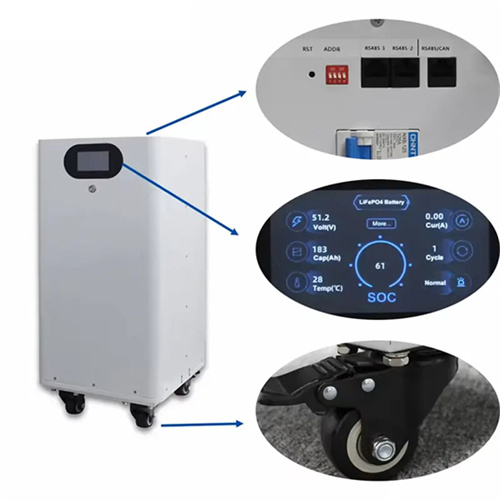Belgium storage of lithium batteries hse

Storing Lithium-ion batteries in the workplace
In light of the growing risks from e-bikes and scooters in the workplace, we have published an introductory guide for employers on managing lithium-ion (Li-ion) batteries. This covers everything from charging and storage to internal policies and procedures.

Tailor-made solutions for end-of-life EV-batteries
Safe storage & transportation of lithium-ion batteries: our pre-approved systems for your peace of mind. When handling lithium-ion batteries, safety is paramount, especially when you come in contact with used and potentially unstable batteries.

EU Battery Regulation (2023/1542) 2024 Requirements
Users legally purchasing these batteries are granted read-only access to this data through the BMS. This access facilitates various functions, including making batteries available for energy storage, assessing residual

Tailor-made solutions for end-of-life EV-batteries
Safe storage & transportation of lithium-ion batteries: our pre-approved systems for your peace of mind. When handling lithium-ion batteries, safety is paramount, especially when you come in contact with used and potentially unstable batteries.

Preventing Lithium-ion Battery Fires: Bridging
While various groups in Belgium are working on developing guidance and best practices to mitigate these risks more effectively, regulations to help prevent lithium-ion battery fires in industrial storage and recycling

Battery Storage Fire Safety Research at EPRI
Battery Storage Fire Safety Roadmap 2021 Public 3002021077 Battery Energy Storage Fire Prevention and Mitigation Project –Phase I Final Report 2021 EPRI Project Participants 3002021077 Lessons Learned: Lithium Ion Battery Storage Fire Prevention and Mitigation - 2021 2021 Public 3002021208

EU Battery Regulation (2023/1542) 2024 Requirements
Users legally purchasing these batteries are granted read-only access to this data through the BMS. This access facilitates various functions, including making batteries available for energy storage, assessing residual value, and preparing for reuse or repurposing.

The new European Battery Regulation
Batteries for Energy Storage System (ESS) must meet the set safety parameters. Batteries must be accompanied by a document containing the electrochemical performance and robustness parameter values. Consumers must be able to remove and replace batteries from equipment. APPLICABILITY TO NEW BATTERIES IN THESE CATEGORIES • Electric vehicle

TotalEnergies Launches New Battery Storage Project in
It will have a power rating of 25 MW and capacity of 75 MWh, thanks to the forty Intensium Max High Energy lithium-ion containers supplied by Saft. Start-up is expected at the end of 2025.

Preventing Lithium-ion Battery Fires: Bridging Belgium''s
While various groups in Belgium are working on developing guidance and best practices to mitigate these risks more effectively, regulations to help prevent lithium-ion battery fires in industrial storage and recycling facilities need to be further developed.

Storing Lithium-ion batteries in the workplace
In light of the growing risks from e-bikes and scooters in the workplace, we have published an introductory guide for employers on managing lithium-ion (Li-ion) batteries. This covers everything from charging and storage to internal policies

TotalEnergies Launches New Battery Storage Project in Belgium
These battery storage sites play a key role in the resilience of the electricity system, providing flexibility and helping solve grid congestion problems. They also encourage the growth of renewable energies in the country, which require solutions like these to compensate for their intermittency.

6 FAQs about [Belgium storage of lithium batteries hse]
Is totalenergies developing a second battery storage project in Belgium?
Antwerp, April 3, 2024 – On the occasion of Belgian Energy Minister Tinne Van der Straeten's visit to TotalEnergies' Antwerp refinery battery storage project, the Company announced the development in Belgium of a second similar project. The new project will be developed on the site of TotalEnergies’ depot in Feluy.
What are the requirements for batteries for energy storage system (ESS)?
Batteries for Energy Storage System (ESS) must meet the set safety parameters (see article 12). Batteries must be accompanied by a document containing the electrochemical performance and robustness parameter values. Consumers must be able to remove and replace batteries from equipment (see article 11). 2 kWh 2 kWh
What are the requirements for a rechargeable industrial battery?
Performance and Durability Requirements (Article 10) Article 10 of the regulation mandates that from 18 August 2024, rechargeable industrial batteries with a capacity exceeding 2 kWh, LMT batteries, and EV batteries must be accompanied by detailed technical documentation.
Why are battery storage sites important?
These battery storage sites play a key role in the resilience of the electricity system, providing flexibility and helping solve grid congestion problems. They also encourage the growth of renewable energies in the country, which require solutions like these to compensate for their intermittency.
Are Li-ion batteries dangerous?
The rising numbers of injuries and fatalities linked to Li-ion batteries raises new questions and considerations for employers, responsible people, and health and safety practitioners about the risks, challenges, and implications posed by battery technologies (such as e-bikes and e-scooters).
What are the requirements for recycling batteries?
Batteries are to be accompanied by documentation that states how much recycled cobalt, lead or nickel they contain. You are to register as a producer so that compliance with the management of waste batteries can be monitored. Minimum recovery and recycling efficiency for end-of-life batteries is to be ensured.
Related Contents
- Tokelau storage of lithium batteries hse
- Belgium batteries for grid energy storage
- Used ev batteries for solar storage Belgium
- Warehouse storage of lithium ion batteries Pakistan
- Japan lithium batteries storage
- Lithium batteries storage Latvia
- Colombia safe storage of lithium ion batteries
- Safe storage of lithium ion batteries Cayman Islands
- Lithium ion batteries energy storage Türkiye
- Safe storage of lithium batteries Cuba
- Sales volume of lithium batteries for energy storage